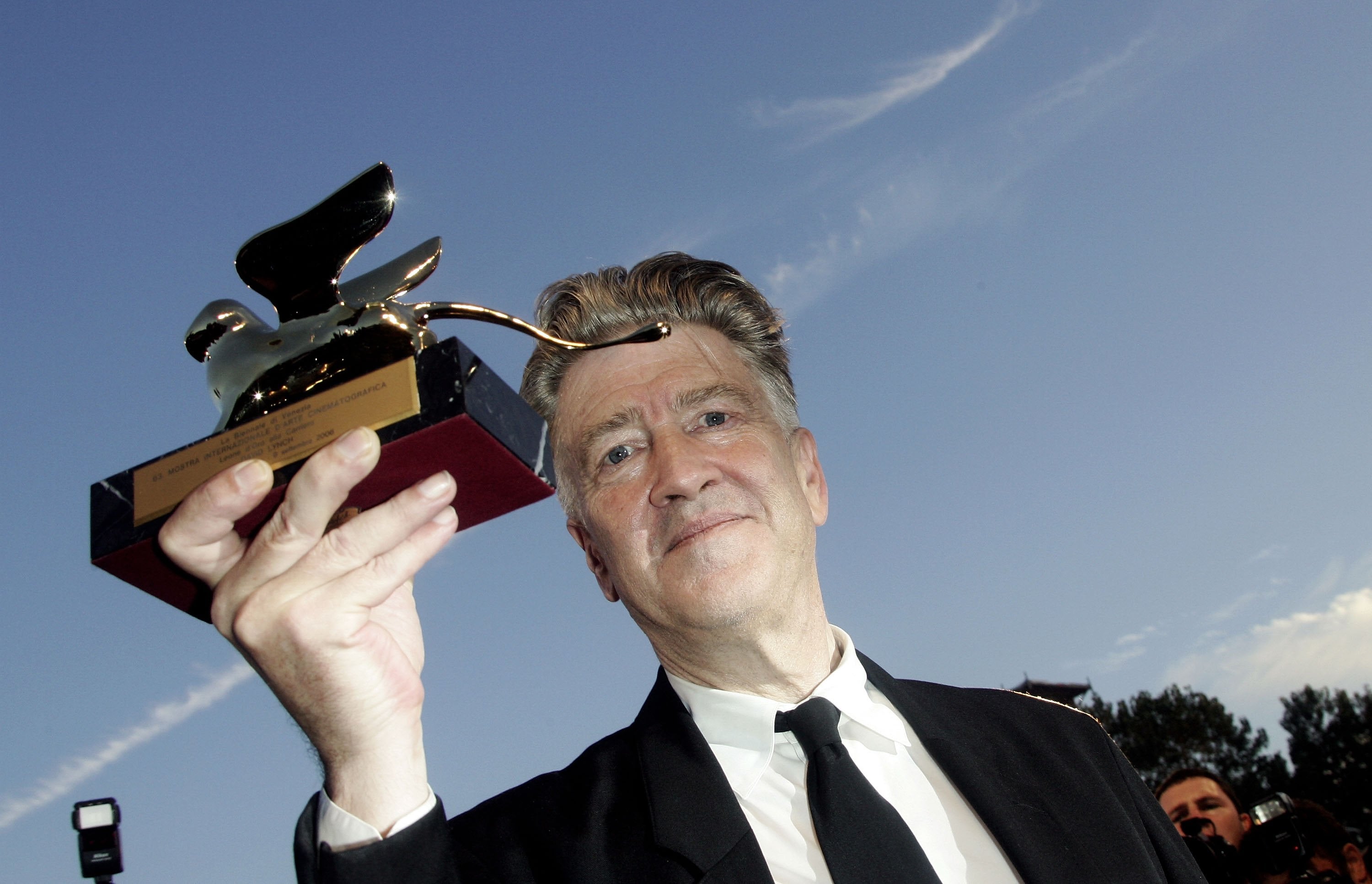David Lynch, the celebrated director of avant-garde films such as Eraserhead, Mulholland Drive and The Elephant Man and the much-loved TV show Twin Peaks, has passed away at the age of 78.
His family announced his death in a Facebook post on Thursday (16 January), writing: “There’s a big hole in the world now that he’s no longer with us. But, as he would say, ‘Keep your eye on the donut and not on the hole.’”
Speaking to Sight & Sound magazine last year, Lynch revealed he had been diagnosed with emphysema due to smoking throughout his life, and said he could not “go out” because of the risk of catching Covid.
“I’ve gotten emphysema from smoking for so long and so I’m homebound whether I like it or not. It would be very bad for me to get sick, even with a cold,” he said, revealing that he could only walk a short distance before he was “out of oxygen”.
Known for his use of unsettling visuals, stream-of-consciousness storytelling style, and kitsch soundtracks, Lynch walked a tightrope between his artistic sensibilities and his inexplicable popular appeal among the more conventional moviegoing public. New Yorker film critic Pauline Kael labelled him “the first populist surrealist”.
In his frequent collaborations with Hollywood luminaries such as Laura Dern, Kyle MacLachlan, Sheryl Lee, Naomi Watts, Jack Nance and Harry Dean Stanton, the director leaves behind an oeuvre that rivals the medium’s most accomplished auteurs.
Born in Missoula, Montana in 1946 to an agricultural research scientist and an English tutor, the young David Lynch had aspirations to be a painter. He studied at Boston’s School of the Museum of Fine Arts, but left after only a year, saying that he was “not inspired” by the experience. Instead, he travelled around Europe, hoping to train with Austrian expressionist painter Oskar Kokoschka – however, he returned to the US after only two weeks upon learning that the artist was unavailable.

Lynch completed his first film, Six Men Getting Sick (Six Times), in 1967 while attending the Pennsylvania Academy of the Fine Arts. The project was an experimental animated short featuring six figures vomiting in sequence while a siren plays on a loop, and bore many of what would later be considered hallmarks of Lynch’s directing style: absurdity; surrealism; jarring, unsettling imagery; and above all a keen sense of playfulness and humour.
The project was followed by short films including The Alphabet (1968), The Grandmother (1970) and The Amputee (1974), the latter of which saw one of Lynch’s first onscreen appearances as an actor. Lynch would step in front of the camera many times over the course of his career, most notably as FBI agent Gordon Cole in Twin Peaks and John Ford in the climax of Steven Spielberg’s 2022 film The Fabelmans.
Lynch’s big break came in 1977, with the release of his genre-defying experimental film Eraserhead. The film’s story – such as it is – follows Henry Spencer (Nance), who finds himself caring for a monstrous child in a dreamlike, black-and-white parody of modern America.
Despite (or perhaps because of) its strange subject matter, the film managed to gross $7m on a £100,000 budget, and established Lynch not only as one of the most brilliant and daring filmmakers of the age, but also as one that could – against all odds – turn a profit.
While the film garnered negative reviews at the time – including from Variety, which called it “a sickening bad-taste exercise” with “little substance or subtlety” – the film is now seen as an exemplar of surrealist filmmaking, with some comparing it to Luis Buñuel’s L’Age d’Or or Alain Resnais’s Last Year at Marienbad.

Lynch found his first taste of mainstream critical acceptance with his 1980 biographical account of the life of Joseph Merrick, The Elephant Man. The film, which starred John Hurt and Anthony Hopkins, was nominated for eight Academy Awards, including Best Picture, and saw Lynch receive his first nod for Best Director. Hurt, who starred as Merrick in the film, called the movie “the advent of probably one of the greatest directors of the 20th century”, and said of Lynch: “Now there’s a man who talks the language of cinema.”
Lynch developed that language in the coming years and decades, as he directed his seminal works Blue Velvet (1986), Wild at Heart (1990), Lost Highway (1997) and Mulholland Drive (2001), each of which garnered the same combination of bafflement, disgust, fury, appreciation, and ultimately critical acclaim as his early efforts. His final full-length theatrical work, Inland Empire, was released in 2006, after which Lynch spent much of the rest of his life developing projects for television and the internet, alongside writing and painting.
Over the course of his career, Lynch received three Academy Award nominations for Best Director and a nomination for Best Adapted Screenplay. He twice won France’s César Award for Best Foreign Film, as well as the Palme d’Or at the Cannes Film Festival and a Golden Lion award for lifetime achievement at the Venice Film Festival.
Though he is known primarily as a director of film, perhaps Lynch’s most enduring work is his television series Twin Peaks. Released in the early 1990s, it quickly became one of the most intensely analysed and discussed shows on television, with its central mystery of who killed prom queen Laura Palmer capturing the attention of audiences the world over. Despite its being steeped in Lynch’s trademark surrealism and non-linear storytelling, audiences were enthralled from the off, as speculation about the identity of Laura’s killer became watercooler conversation across the globe. The show has been cited as having had a major influence on similarly acclaimed series, such as Lost, The X-Files and True Detective.

The show spawned a theatrical film – Fire Walk With Me – which was released in 1992 after the cancellation of Twin Peaks. While it was not received well at the time, with many fans considering it an unsatisfying way to wrap up the series (as it was, at the time, intended to do), like much of Lynch’s work it has since been reappraised, and is now considered a cult classic.
Twin Peaks was revived once again in 2017, this time as a limited series titled Twin Peaks: The Return. Like the original seasons, The Return received critical acclaim and was named by Rolling Stone, The Washington Post, and Esquire as the best television show of that year. It is considered by many to be one of the greatest pieces of television ever made, with Sean T Collins of Rolling Stone calling it “one of the most groundbreaking TV series ever”.
David Lynch is survived by his four children, Jennifer Lynch, Austin Jack Lynch, Riley Lynch, and Lula Lynch. His eldest, Jennifer, is a filmmaker in her own right, directing the film Boxing Helena in 1993, as well as working on TV shows including The Walking Dead, American Horror Story, and Marvel’s Agents of S.H.I.E.L.D. She also wrote the New York Times bestselling book The Secret Diary of Laura Palmer, which is set in the universe of her father’s show Twin Peaks.
Unlike his films, and very much like his life, Lynch’s legacy is uncontroversial and unambiguous: he will, quite simply, be remembered as one of the greatest directors of all time. He leaves behind a body of work that will keep film students and scholars busy for generations, but the simple fact of his genius will never be in doubt.
To quote Roger Ebert’s four-star review of Mulholland Drive: “The way you know the movie is over is that it ends.”
David Keith Lynch, born 20 January 1946, died January 2025 aged 78







